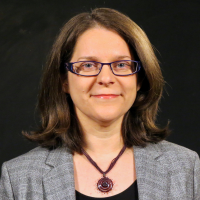
Researchers


Researchers
David Maberley
MD, MSc (Epid), FRCSC
Our goal is to develop a National Diabetic Retinopathy(DR) assessment program, registry, and clinical trials unit that will be accessible to all Canadians with diabetes. This program will define and implement a best practices approach for the early diagnosis and management of DR, preventing blindness and visual disability. Novel components of this program include a scalable National DR Registry, a patient-oriented research program, and an App to assist patients with managing their eye care.
Patrick MacDonald
Dr. Patrick MacDonald is Professor of Pharmacology at the University of Alberta, where he has studied pancreatic endocrine function since 2006 and holds a Canada Research Chair in Islet Biology. His laboratory works to understand the cellular machinery that controls production of the important blood sugar controlling hormones insulin and glucagon by islet cells from human organ donors. Dr. MacDonald directs the Alberta Diabetes Institute IsletCore, one of the world’s largest sources of human pancreas research tissue, and co-founded the Canadian Islet Research and Training Network.
Donna Manca
MD, BMSc, MClSc
Dr. Donna Manca’s research is focused on obtaining and using data for research and to improve care through prevention, screening and better management. She is the Director of the Northern Alberta Primary Care Research Network (NAPCReN), a network contributing data to the Canadian Primary Care Research Network (CPCSSN).
Robin Mason
M.A., M.Ed., Ph.D
Robin Mason is committed to enhancing the understanding of, and commitment to, the integration of an intersectional sex and gender lens (SGBA+) in all health research. To this end, she has designed educational materials and activities to engage students, trainees, patients and other community members, as well as established researchers in considering the impact of sex, gender and other identity-related factors in their studies. Dr. Mason has been working on issues of gender-based violence and medical education for 20 years and has contributed to the development of policies at the local, provincial and national level.
Jon McGavock
PhD,
Dr. McGavock established his lab at the Children’s Hospital Institute of Manitoba in 2006 to study the treatment and prevention of type 2 diabetes in youth. He is a CIHR Applied Health Chair (2014-2019) and the lead for the DREAM and DEVOTION research teams that have secured over $22M in external funding to reduce the burden of type 2 diabetes in youth in Canada. He currently is the PI for a CIHR Pathways team grant that assembled Canada’s largest network of scientists and Indigenous communities focused on the prevention of type 2 diabetes among Indigenous youth.
Osnat Melamed
MD, MSc
Dr. Melamed is a family physician and researcher at CAMH. Her primary research focuses on the integration of telehealth treatments for mental health and addictive disorders into everyday clinical practice. One of her key areas of interest involves investigating the incorporation of remote health coaching into the care of individuals with diabetes. Her goal is to provide support for healthy behaviors and emotional well-being in this population. Furthermore, Dr. Melamed has contributed as a co-author to the Mental Health chapter of the 2023 Clinical Practice Guidelines published by Diabetes Canada.
Andréanne Michaud
PhD
Andréanne Michaud (PhD, RD) is an Assistant Professor at Université Laval School of Nutrition and a researcher at the Quebec Heart and Lung Institute (IUCPQ), the Centre Nutrition, santé et société (NUTRISS) and the Institute of Nutrition and Functional Foods (INAF).
Christine Murphy
RN, BSc(Hons) Tissue Viability, MClSc(WH), PhD, WOCC(C)
Dr. Christine Murphy is a Registered Nurse and Nurse Specialized in Wound, Ostomy & Continence (NSWOC) with Canadian Nurses’ Association certification.
Ruth Ndjaboue
Ruth Ndjaboue is an assistant professor in the School of Social Work at Université de Sherbrooke (Quebec, Canada) in Canada and the Canadian Research Chair in Inclusivity and Active Ageing . She is a former post-doc fellow of Diabetes Action Canada (2017-2018 and 2019-2021). Dr. Ndjaboue holds a PhD in Epidemiology from Université Laval (Quebec, Canada), a master degree in Psychology (Université of Yaounde I, Cameroon) and a master in Public Health (Université Libre de Bruxelles, Belgium).
Jason Noble
MD, FRCSC
Dr Jason Noble is an ophthalmologist and medical retina specialist based out of Toronto, Ontario. He completed his undergraduate and medical studies, as well as his residency training in Ophthalmology, at the University of Toronto. He then pursued a fellowship in medical retina and diabetic eye disease at the Joslin Diabetes Center, Harvard Medical School. He is board certified both in Canada and the United States.
Melissa Northwood
RN, BScN, MSc Clinical Health Sciences (Nursing), PhD (McMaster)
Melissa Northwood is an Assistant Professor in the School of Nursing and early career researcher with the Aging, Community and Health Research Unit (ACHRU). The focus of her program of research is health- and social-care integration for older adults with clinical complexity and their caregivers.
Braden O’Neill
MD, DPhil, CCFP
Dr. Braden O’Neill is a family physician clinician-scientist whose research program generates evidence to improve primary care for people with mental health concerns, including the prevention and management of chronic diseases among those with mental illness. He is co-lead for the DAC National Diabetes Repository and Digital Health Solutions POR Program.
Mathieu Ouimet
PhD
Mathieu Ouimet is a professor in political science at Université Laval in Quebec City. His areas of expertise include (but is not limited to) the use of research evidence in policymaking and research methods, notably social network analysis, one of the methods used by the HTA & Network Analysis group to evaluate the Network.
Monica Parry
RN(EC), PhD, CCN(C)
Dr. Monica Parry is a Nurse Practitioner (Adult) with over 35 years of cardiovascular (CV) clinical experience. Her clinical expertise has laid the foundation for a program of research to reduce the burden of CV disease and its complications. Dr. Parry is a member of the Banting & Best Diabetes Centre and is Core Faculty and a Collaborating Investigator with the Collaborative Program in Resuscitation Science, Faculty of Medicine, University of Toronto. She is interested in sex and gender issues and is currently leading a research team to develop and test at heart: A WebApp for Women with Heart Disease.
Bruce Perkins
MD MPH FRCP(C)
Dr. Bruce Perkins’ research platform, research leadership, clinical practice, and advocacy work has focused entirely on strategies to improve the lives of those, like himself, living with type 1 diabetes. Using cohort and trial methods, his research has focused on 1) Early biomarkers and mechanisms of diabetes complications, and 2) complications prevention through artificial pancreas technologies and add-on-to-insulin drug therapies.
Marie-Ève Poitras
RN, PhD
Marie-Ève is an Assistant Professor at Université de Sherbrooke (Saguenay campu). She graduated in Nursing in 2005, completed a PhD in Nursing Sciences at Université de Sherbrooke in 2016 and a PDF at U Laval with France Légaré in 2017. She is an expert in knowledge mobilization and patient engagement in the context of primary care of chronic diseases. She is a PI of the CIHR National Training Entity (INSPIRE) and is funded by several other sources.
Justin Presseau
Ph.D.
Dr. Presseau is a Scientist at the Ottawa Hospital Research Institute and Associate Professor in the School of Epidemiology & Public Health and School of Psychology at the University of Ottawa. He leads the Psychology and Health Research Group (PaHRG) and is a core faculty member of the Centre for Implementation Research at the Ottawa Hospital. His research program operates at the intersection between health psychology and implementation science, focusing on developing and evaluate interventions to support changing healthcare professional behaviours and health behaviours of patients and the public.
Cheryl Pritlove
Cheryl Pritlove is a critical qualitative methodologist and health services researcher with expertise in Equity, Diversity and Inclusion (EDI). She employs patient-oriented research methodologies in her work on Type 1 Diabetes, partnering with patients and communities to improve the quality, safety, access, and person-centered nature of diabetes care.
Rémi Rabasa-Lhoret
MD, PhD
Dr. Rémi Rabasa-Lhoret is an endocrinologist at the Montreal Clinical Research Institute (IRCM) and at Université de Montréal university hospital (CHUM), director of the diabetes clinic, the metabolic diseases research unit and Vice president (clinic & clinical research) at the IRCM as well as full professor at Nutrition Department of Université de Montréal. He holds two research chairs. He has published over 350 manuscripts and book chapters (H-index 72) and received multiple awards. He holds funding from multiple agencies including NIH, CIHR-foundation grant, Diabetes Canada & CIHR-JDRF-SPOR. T
Valeria Rac
MD, PhD
Valeria E. Rac, MD, PhD is a Scientist and Health Technology Assessment lead at the Ted Rogers Centre for Heart Research, Toronto General Hospital Research Institute and Director, Program for Health System & Technology Evaluation. She is also an Associate Professor at the Institute of Health Policy, Management and Evaluation (IHPME), University of Toronto. Her program of research is in the area of the design, implementation and evaluation of complex interventions in HTA and chronic disease management in the community. Dr. Rac is a Co-Lead of two research programs with the CIHR SPOR Diabetes Action Canada Network: Knowledge Mobilization, Implementation and Evaluation Program and Diabetic Retinopathy Screening Program.
Jennifer Rayner
Jennifer Rayner is the Director of Research and Policy at the Alliance for Healthier Communities and supports 100+ community based primary care organizations in Ontario. She is an applied health services researcher with interests in primary health care, inter-professional teams and health equity. She is a Research Professor at Western University within the Centre for Studies in Family Medicine and an Associate Professor at University of Toronto in the Department of Community and Family Medicine, and the Institute of Health Policy Management and Evaluation.
Paula Rochon
MD, MPH, FRCPC
Dr. Paula Rochon is the founding director and lead of Women’s Age Lab, the first research centre to focus on older women in the world, based at Women’s College Hospital in Toronto. Through a focus on sex and age disaggregated data collection, Women’s Age Lab aims to support the healthy aging of women by reimagining a system and society where older women and their distinct well-being and health needs are recognized and addressed
Paul E. Ronksley
PhD
Dr. Ronksley’s research focuses on patients with multiple chronic conditions. Specifically, his research aims to improve our understanding of the subset of chronic disease patients that drive health care utilization and spending. Using novel data-linkage methodologies, his work explores the clinical (co-morbid) profiles of patients with multi-morbidity, how they engage with the health care system, and whether care pathways can be modified to improve health outcomes for patients.
Elizabeth Tan Rosolowsky
MD, MPH, FAAP, FRCP(C)
Dr Rosolowsky is a pediatric endocrinologist with a major interest in type 1 diabetes and education at the University of Alberta. During her training she completed a research fellowship at the Joslin Diabetes Centre. She is an active participant in the Canadian Society of Endocrinology and Metabolism and has been a chapter author for the Diabetes Canada Clinical Practice Guideline chapter for management of type 1 diabetes in children.
Robert A. Screaton
PhD
Our research focuses on finding cures for Type 1 and Type 2 diabetes. From a biological perspective, we are interested in understanding how human cells respond to extracellular cues to maintain and ensure their function and survival. A central focus is to better understand how the pancreatic beta cell converts feeding cues into signals leading to insulin synthesis and secretion. We use high-throughput functional genomic imaging screens to identify novel players involved in cell signaling pathways that control human pancreatic beta cell proliferation.
Ervin Sejdić
PhD
Professor Ervin Sejdić, Research Chair in Artificial Intelligence for Health Outcomes at Research & Innovation, North York General Hospital, is an Associate Professor in the Edward S. Rogers Sr. Department of Electrical & Computer Engineering at the University of Toronto. In 2011, Professor Sejdić joined the Department of Electrical and Computer Engineering at the University of Pittsburgh as a tenure-track Assistant Professor, subsequently promoted to a tenured Associate Professor.
Peter Selby
MBBS, CCFP, FCFP, MHSc, dipABAM, DFASAM
Dr. Selby’s research focus is on innovative methods to understand and treat addictive behaviours and their comorbidities. He also uses technology to combine clinical medicine and public health methods to scale up and test health interventions. His cohort of 240,000 treated smokers in Ontario is an example.
Martin Sénéchal
PhD, CSEP-CEP
Dr. Sénéchal’s research interests focus on the impact of physical activity and exercise training on cardiometabolic health in individuals living with obesity.
Peter Senior
BMedSci (Hons), MBBS (Hons), Ph.D., FRCP, FRCP(E)
Dr. Peter Senior is a Professor of Medicine and Director of the Division of Endocrinology and Metabolism at the University of Alberta. He is the Medical Director of the Clinical Islet Transplant Program and co-director of the Northern Alberta Diabetic Nephropathy Prevention Program. His clinical and research interests focus on type 1 diabetes, islet transplantation, hypoglycemia and diabetic nephropathy.He has been an investigator in a number of clinical trials in both diabetes and islet transplantation ranging from large multicentre studies (eg ACCORD) to smaller investigator-initiated trials.
Baiju Shah
MD, PhD
Dr. Baiju Shah is a health services researcher and clinician-scientist in endocrinology. He is a staff physician, Divisions of Endocrinology and Obstetric Medicine, Department of Medicine, Sunnybrook Health Sciences Centre and Head of the Division of Endocrinology. He is a Professor at the University of Toronto and IHPME, a Scientist at Sunnybrook Research Institute and a Senior Core Scientist at ICES. His research seeks to understand and improve the quality of care and long-term outcomes of people with diabetes.
Diana Sherifali
RN, BScN, PhD, CDE
Diana Sherifali is an Associate Professor in the School of Nursing at McMaster, and a registered nurse. She is a clinical nurse specialist in the Diabetes Care and Research Program at Hamilton Health Sciences. She is also director of the McMaster Evidence Review and Synthesis Team, based in the School of Nursing at McMaster. Effective July 1, 2019, Diana was appointed the inaugural Heather M. Arthur Population Health Research Institute/Hamilton Health Sciences Chair in Inter-Professional Health Research.
Rayzel Shulman
MD, PhD, FRCPC
Dr. Shulman’s research program is focused on developing and evaluating health services interventions to improve the health and quality of care for youth living with diabetes. Areas of focus include transition to adult care, preventing DKA at diabetes diagnosis, and reducing socioeconomic disparities in care and outcomes. She is particularly interested in developing and evaluating interventions that leverage existing population-level administrative datasets to inform health system change. .
Alex Singer
Dr. Alex Singer is a practicing family physician clinician-teacher and an Associate Professor in the Department of Family Medicine at the University of Manitoba where he serves as the Director of Research and Quality Improvement. He is the Network Director of the Manitoba Primary Care Research Network where he leads and collaborates on several regional and national practice-based research studies.
Aleksandra Stanimirovic
MPH, PhD
Aleksandra is a Scientific Associate within the Program for Health System and Technology Evaluation at the Toronto General Hospital Research Institute and Assistant Professor at the University of Toronto (IHPME). She is well trained in mixed methods and led the economic evaluation of the tele-retinopathy program. Aleksandra has developed a profound interest in the interplay of social theories and economics using the intersectionality framework guided by a health equity lens.
André Tchernof
PhD
Metabolic complications of obesity and body fat distribution, with a particular emphasis on adipose tissue physiology. Experimental approaches combine cellular biology techniques with biochemistry, genomics, transcriptomics and clinical investigation in humans as well as the study of bariatric surgery.
Marie-Claude Tremblay
PhD
Marie-Claude Tremblay is an Associate Professor in the Department of Family Medicine and Emergency Medicine at Université Laval. Her research expertise includes mixed methods and qualitative research, patient engagement and participatory research approaches. Her current research uses participatory approaches to make the health system more equitable and accessible to marginalized populations. She leads various projects that address cultural safety of health care, racism issues in the health system, patient participation in research and health education, as well as reflexivity as a strategy for critical learning.
Karen Tu
MD, MSc
Health Informatics, Health Service Delivery, Electronic Medical Records, Administrative Databases, Quantitative Data Analysis, Chronic Diseases, Observational Studies
C. Bruce Verchere
PhD
Bruce’s research, funded by CIHR, JDRF, and the Stem Cell Network, aims to understand how pancreatic islet beta cells function and why they are lost or are dysfunctional in both type 1 and type 2 diabetes and following transplantation. He has made contributions to our understanding of islet inflammation, the biosynthesis of beta cell hormones, and the pathophysiology of the beta cell peptide islet amyloid polypeptide. He has chaired and served on review panels for CIHR, JDRF, and NIH, is currently an associate editor of the journals Islets and Diabetes, and sits on the editorial boards of Endocrinology and Diabetologia.
Xiaolin Wei
MD, MPH, PhD
Xiaolin is a medical doctor, public health specialist, professor and the Dalla Lana Chair in Global Health Policy in the Dalla Lana School of Public Health (DLSPH), University of Toronto. He was elected as a Fellow of the Faculty of Public Health of UK in 2012, and a Fellow of Canadian Academy of Health Sciences in 2022. Xiaolin is the faculty co-lead for implementation science in DLSPH. He has led randomized trials to change clinical practice and make impacts at the policy level in areas of antimicrobial resistance, tuberculosis control and diabetes/ hypertension care.
Alanna Weisman
MD, PhD
Dr. Alanna Weisman is a Clinician Scientist and Endocrinologist at Mount Sinai Hospital and University Health Network. She is an Assistant Professor in the Department of Medicine at the University of Toronto, a Clinician Scientist at the Lunenfeld Tanenbaum Research Institute, and an adjunct Scientist at ICES. Her research program is focused on investigating and understanding determinants of outcomes in type 1 diabetes, to ultimately inform novel management strategies.
Carly Whitmore
RN PhD CPMHN
Dr. Carly Whitmore is a Registered Nurse, certified psychiatric and mental health nurse, and Assistant Professor in the School of Nursing at McMaster University. Carly’s research focuses on optimizing care and care delivery for those living with chronic conditions and co-morbid mental health challenges.
Holly Witteman
PhD
With an interdisciplinary background in human factors engineering and social sciences, Dr. Witteman’s research is about person-centred digital health, including a focus on how best to adapt technology to people rather than expecting people to adapt to technology. She specializes in human-computer interaction in health education, risk communication and decision making, including design methods to support inclusive user- and patient-centeredness. Dr. Witteman has lived with type 1 diabetes since being diagnosed as a young child in 1983. Her role in Diabetes Action Canada is to serve as a bridge between people whose lives involve managing diabetes 24 hours a day, 7 days a week, and scientists who study diabetes but don’t live with it.
David Wong
MD, FRCS(C), FASRS
David Wong, is an Honours graduate from the University of Toronto’s Medical Doctorate program who specializes in Vitreous and Retina surgery after completing a residency in ophthalmology at U of T and a fellowship with Dr. Michael Shea in Toronto followed by a second fellowship with Dr. Stanley Chang in Columbia, New York. Dr. Wong is a fellow of the Royal College of Physicians and Surgeons of Canada and is certified by the American Board of Ophthalmology. His recent interests include better diabetic retinopathy surveillance that may catch the disease in the earlier stages and developing new ophthalmic biomaterials.
Jane Yardley
Jane Yardley, PhD, is the Director of the Research Unit in Physical Activity and Diabetes at the Montreal Clinic Research Institute, a member of the Alberta Diabetes Institute, and a member of the Women and Children’s Health Research Institute. Her work has focused on sex and gender-related differences in exercise behaviours and blood glucose responses to exercise in people with type 1 diabetes, with a particular emphasis on menses and menopause. She is a co-author of the 2016 American Diabetes Association Consensus Statement on Exercise and Physical Activity in Diabetes.
Rose Yeung
MPH, MD, BSc
Rose Yeung is an academic endocrinologist with special interest in diabetes quality improvement. Her aim is to co-create interventions and improved care processes for preventing and reducing the burden of diabetes in partnership with people with lived experience of diabetes, health care team members, and other system stakeholders. She is also a Senior Medical Director for the University of Alberta Office of Lifelong Learning and Physician Learning Program.
Catherine Yu
MD, FRCPC, MHSc, BSc
Dr. Catherine Yu is an associate professor at the Dalla Lana School of Public Health at the University of Toronto, and an associate scientist at Li Ka Shing Knowledge Institute of St. Michael’s Hospital. Dr. Yu’s research interests focuses on the role of patient and clinician behaviour change within knowledge translation for chronic disease management. She is particularly interested in the development of innovative strategies for continuing professional development and patient engagement in diabetes care.
Ian Zenlea
MD, MPH
Dr. Ian Zenlea (he/him) is a paediatric endocrinologist and Division Head & Medical Director of Children’s Health at Trillium Health Partners (THP). At the Institute for Better Health at Trillium Health Partners, he is a Clinician Scientist and Lead of the Family and Child Health Initiative, a community-based participatory research program that co-designs, implements and evaluates health and social solutions to improve the health and overall well-being of children and families.















































